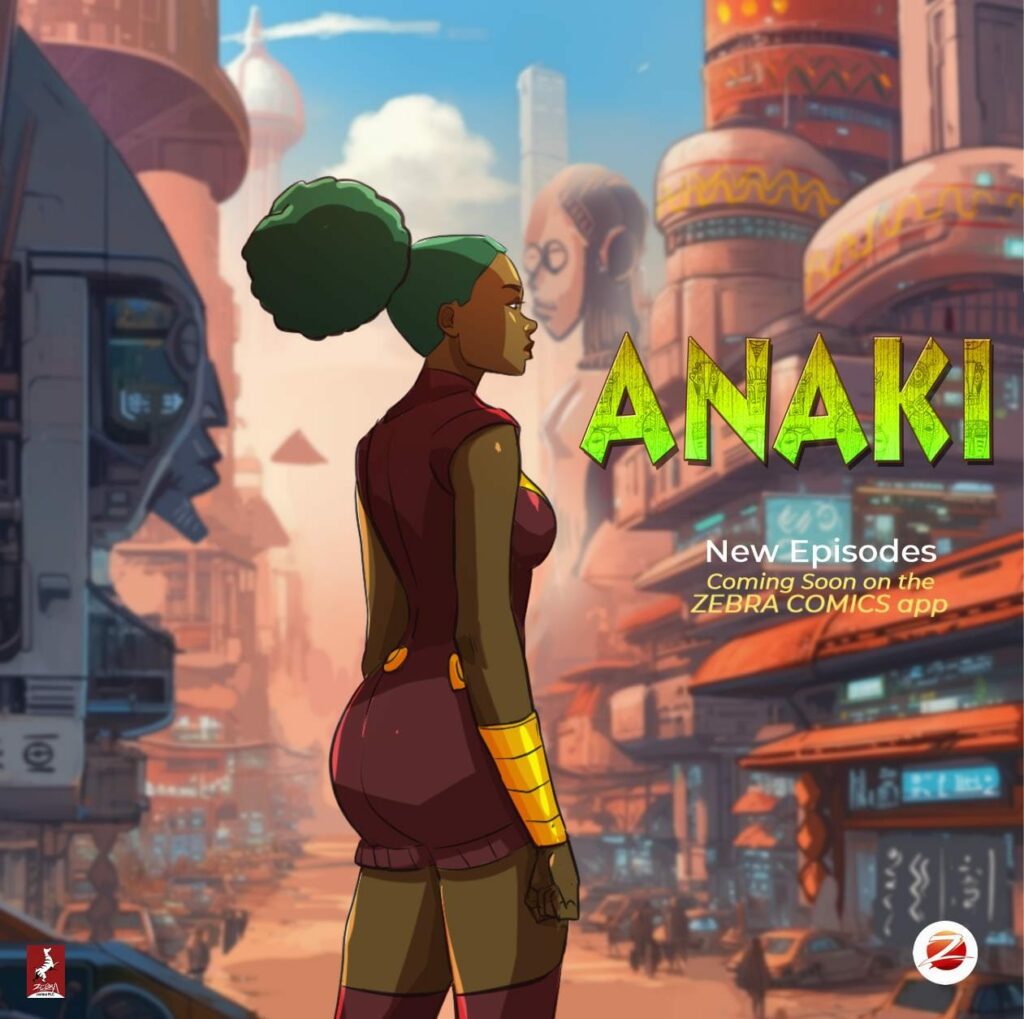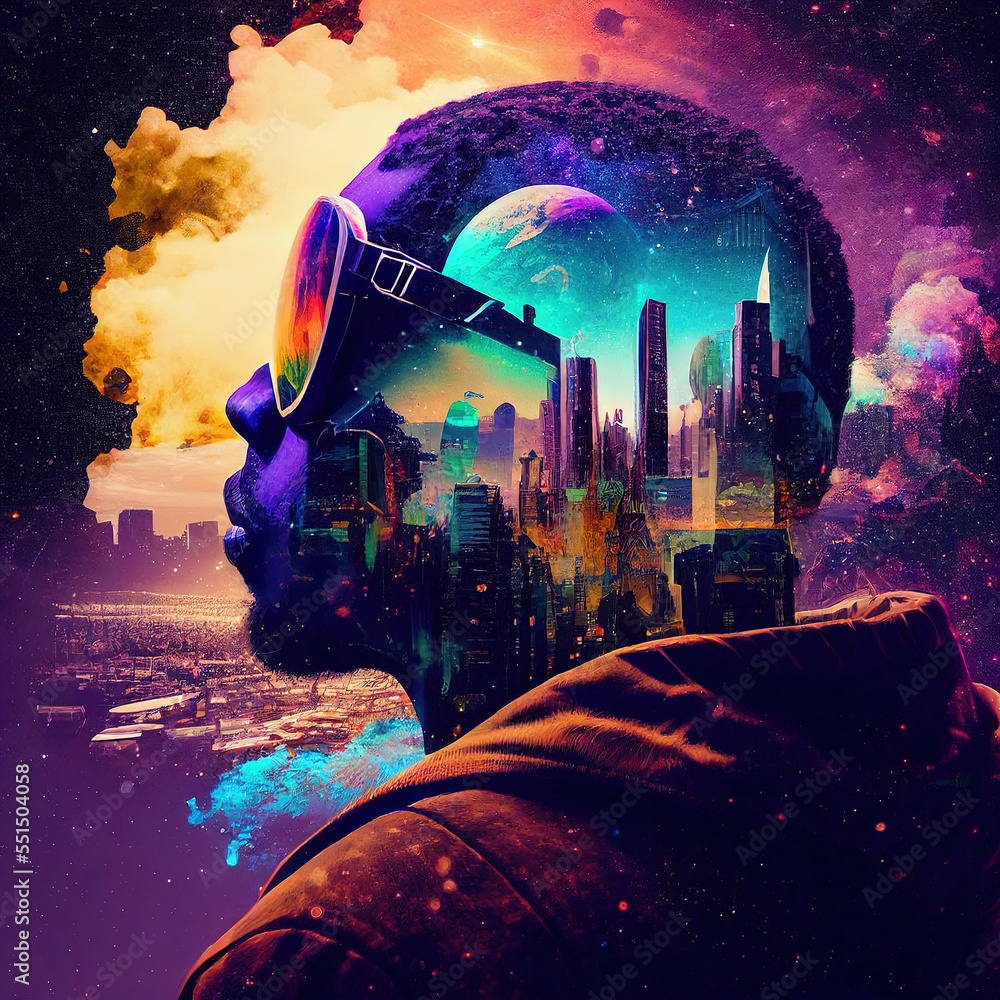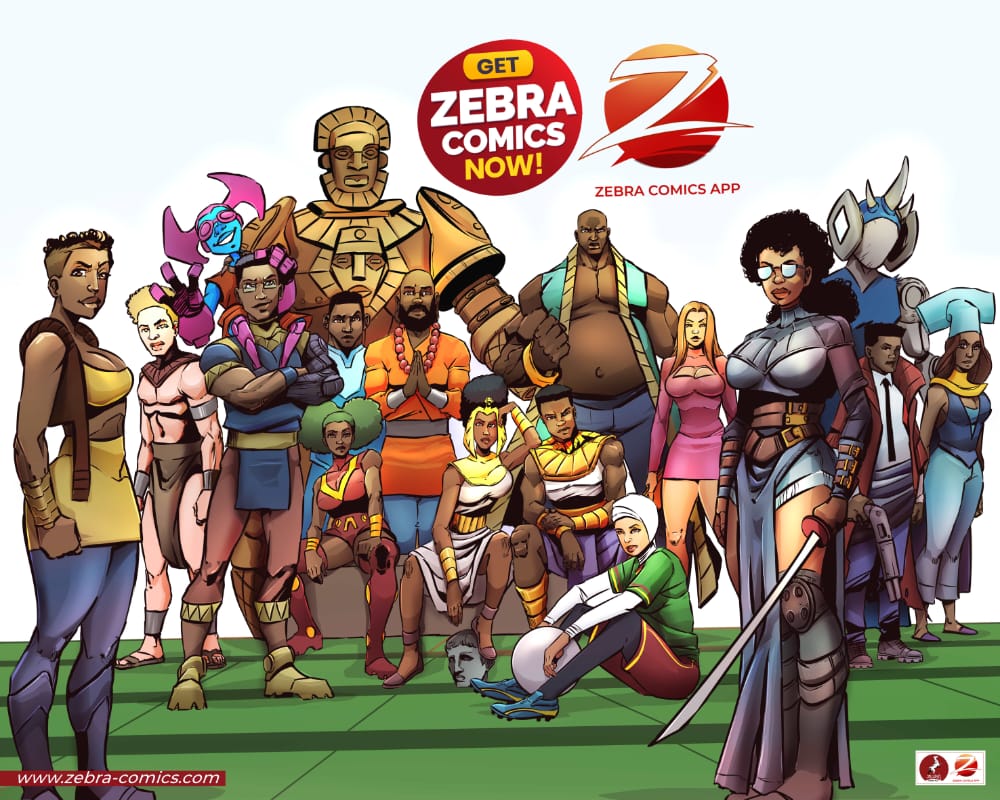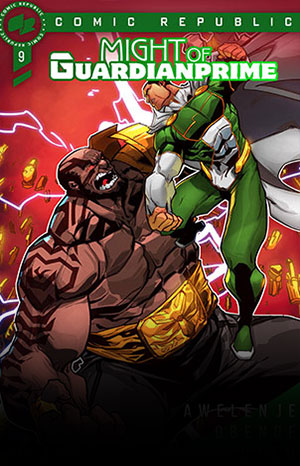Afrofuturism, a genre-blending science fiction, fantasy, and elements of African culture and history, has been a beacon of creativity and empowerment for marginalized voices worldwide. It envisions alternative futures where Black identities and experiences are centered, offering a platform for storytelling that challenges conventional narratives. One such example of Afrofuturism in African comics is the comic book series “Anaki,” a captivating narrative that delves into themes of identity, power, and survival through the lens of African mythology and modern technology.
Created by EN Ejob and published by Zebra Comics PLC, “Anaki” is a new comics and webtoon series that introduces readers to a world where ancient myths collide with futuristic technology. The story revolves around Anaki, a witch known as a Balemba, who finds herself as the last of her kind, struggling to survive amidst a relentless inquisition determined to eradicate her people. Born from the union of lesser gods and humans, the Balemba possess extraordinary powers that threaten the order imposed by the chief god, Ramun. Thus, Anaki’s journey becomes a desperate quest for survival in a world where her existence is deemed a threat.
At its core, “Anaki“, like many new African comics, explores a myriad of complex themes, including religion, science, genocide, identity, love, and power. Through its rich narrative tapestry, the series confronts the consequences of religious intolerance, as the Balemba face persecution and extermination for their perceived blasphemy. Moreover, the juxtaposition of traditional African mysticism with cutting-edge technology underscores the tension between the past and the future, highlighting the resilience of cultural heritage in the face of modernization.
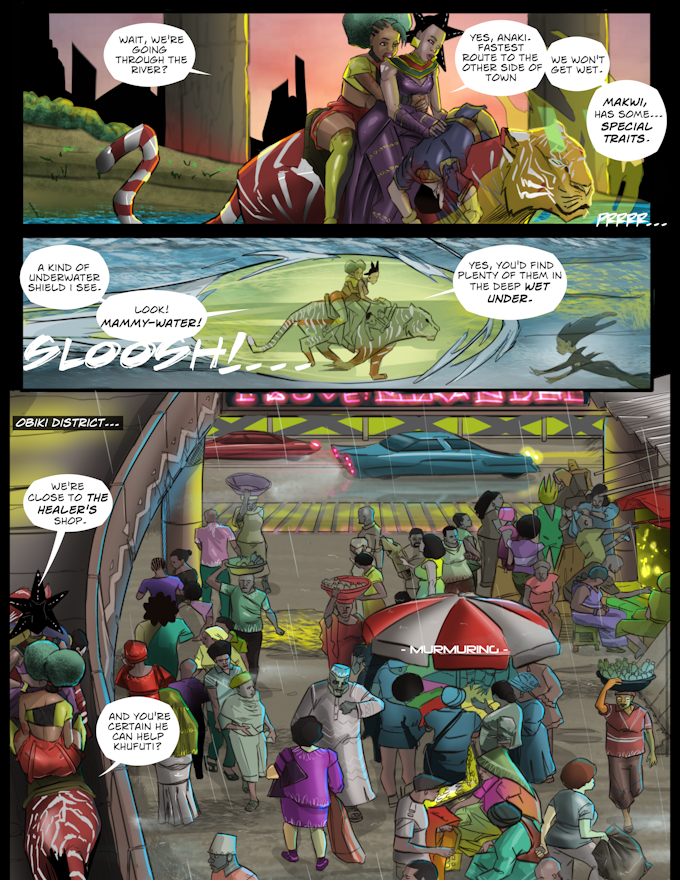
Visually stunning, “Anaki” boasts a vibrant art style that brings its world to life in vivid detail. From the colorful characters to the intricately rendered settings (modernized thatch-roofed houses, flying cars, etc), every aspect of the comic is imbued with African inspiration. Characters like Khufuti, a hacker and thief struggling to survive in a hostile world, exemplify this fusion of tradition and modernity, with his “Calaputer” – a computer shaped like a calabash – serving as a testament to the ingenuity of African design. A true show of the exception that new African comics can procure to readers from across the world.
Furthermore, the inclusion of African languages and pidgin English adds authenticity to the story, immersing readers in its rich cultural tapestry. The presence of familiar motifs such as pyramids and traditional attire like the Ndop and the Toghu further enhances the sense of immersion, grounding the narrative in African realities while exploring universal themes of love, loss, and redemption.
Despite its futuristic setting, “Anaki” remains firmly rooted in the principles of Afrofuturism, offering a vision of the future that is both innovative and deeply connected to its African heritage. Giant robots adorned with African masks and mystical rituals intertwined with technological marvels exemplify this fusion of tradition and innovation, creating a world that is as enchanting as it is thought-provoking.
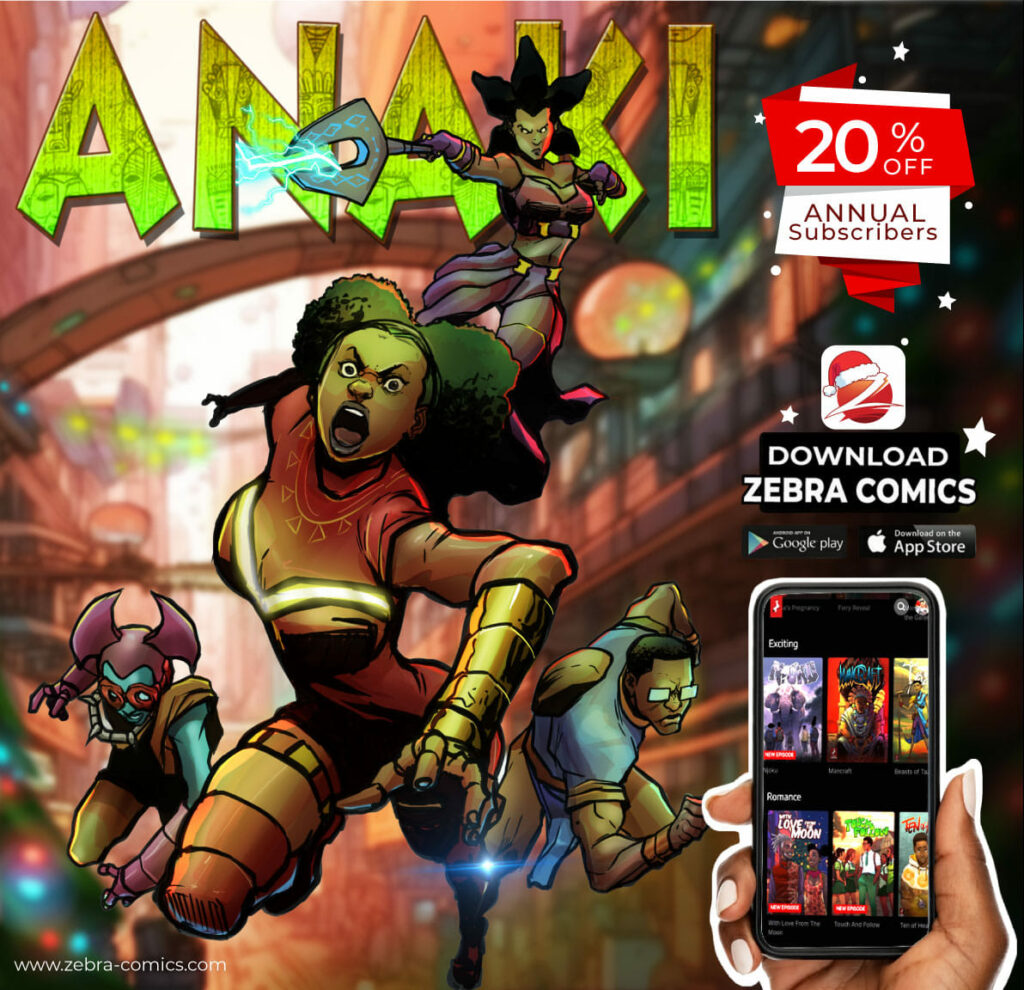
Central to the allure of “Anaki” is its compelling characters, each with their own unique struggles and motivations. From Anaki herself, a recalcitrant heroine discovering her true identity, to the enigmatic Nubed, whose resurrection holds the key to unlocking ancient mysteries, the cast of “Anaki” is as diverse as it is engaging, drawing readers into their world with every twist and turn of the plot.
In conclusion, “Anaki” stands as a testament to the power of Afrofuturism to inspire, entertain, and provoke thought. Its blend of African mythology, futuristic technology, and compelling storytelling make it a valuable addition to the canon of works exploring African identity and experience. With its successful funding on Kickstarter and availability on the Zebra Comics app and website, “Anaki” offers readers an opportunity to immerse themselves in a world where the past, present, and future collide in spectacular fashion.

